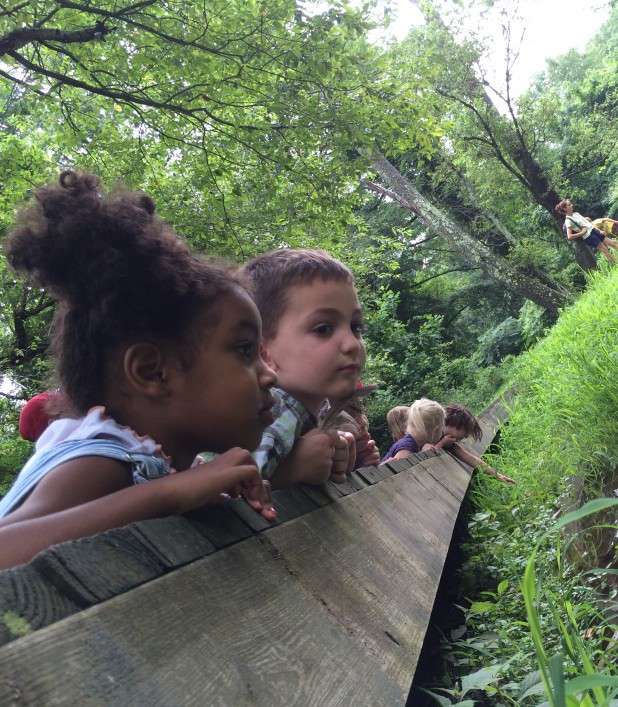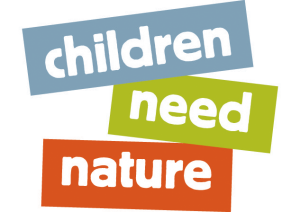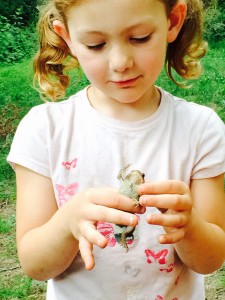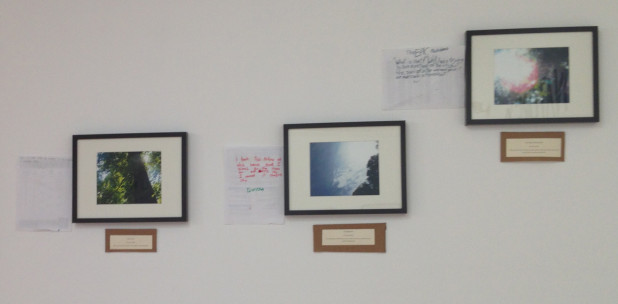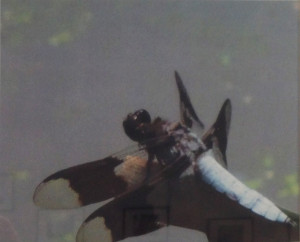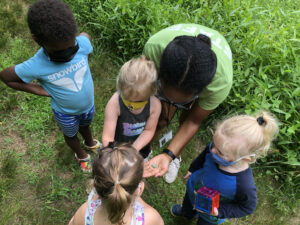 Now that summer is here and covid-related restrictions have loosened, summer camp at the Schuylkill Center is in full swing giving many kids their first taste of freedom in over a year. This summer follows an atypical school year, when most students spent all or part of the academic year learning from their desk, bed or dining room table. They adjusted to long school days in front of a computer screen, without recess or the opportunity to socialize with their classmates. For those that attended school in-person, connecting with friends was a challenge with face masks, reduced class sizes, physical barriers and social distancing.
Now that summer is here and covid-related restrictions have loosened, summer camp at the Schuylkill Center is in full swing giving many kids their first taste of freedom in over a year. This summer follows an atypical school year, when most students spent all or part of the academic year learning from their desk, bed or dining room table. They adjusted to long school days in front of a computer screen, without recess or the opportunity to socialize with their classmates. For those that attended school in-person, connecting with friends was a challenge with face masks, reduced class sizes, physical barriers and social distancing.
If you come to Camp Schuylkill on a hot day, you will see our campers running through sprinklers, picking wineberries, lifting logs to count the slugs and pillbugs, and balancing on tree stumps. Except for the legacy of wearing face masks indoors and maintaining physical separation among camp groups, it looks like a typical summer at the Schuylkill Center.
I had the opportunity to chat with some young campers at Camp Schuylkill and learned first hand how it feels to be at summer camp after the strangest school year in memory. One camper’s response summed it all up, “It feels good and very refreshing!” Because we are a nature-based program, campers shared some of their favorite things about summer camp including: “collecting mushrooms.” “building forts,” “hikes,” “edible wild snacks,” and “going on cool nature trails.” While I expected that kids would be most excited about playing outdoors and being in nature, their most common answers were making new friends and playing games with them.
One camper even mentioned spending many weekends on the trails here at the Schuylkill Center. 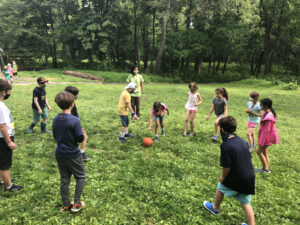 Given more thought, this makes a lot of sense. The benefits of spending time in nature for kids and adults are well-known. When the pandemic was in full force and lockdowns closed schools and businesses and cancelled public and private gatherings, people largely responded by taking to parks and nature trails; it was one of the safest ways to spend time outside of the house. Lots of campers reported that the grown-ups in their lives committed to regular walks to balance out their increased screen time.
Given more thought, this makes a lot of sense. The benefits of spending time in nature for kids and adults are well-known. When the pandemic was in full force and lockdowns closed schools and businesses and cancelled public and private gatherings, people largely responded by taking to parks and nature trails; it was one of the safest ways to spend time outside of the house. Lots of campers reported that the grown-ups in their lives committed to regular walks to balance out their increased screen time.
What was more difficult to replace was the social interactions that kids would normally get being physically at school every day. On top of schools being closed, playdates were cancelled, birthday parties were converted to drive-by celebrations, and vacations to visit extended family were the all-too-familiar video chats. It was a ‘perfect storm’ for isolation. For healthy social and emotional development, children need to interact with their peers. During the pandemic, most were isolated from each other for more than a year. While adults could have Zoom reunions and social media to connect with folks outside of their bubble, those same types of interactions aren’t as engaging for kids.
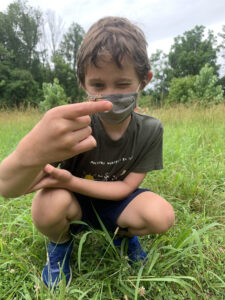 We are delighted that kids arrive each morning eager to explore our trails and play games with their new friends. They are making up for 18 months of lost connections and stalled friendships, missed celebrations and postponed playdates. Summer camp gives them a chance to recapture the magic of childhood.
We are delighted that kids arrive each morning eager to explore our trails and play games with their new friends. They are making up for 18 months of lost connections and stalled friendships, missed celebrations and postponed playdates. Summer camp gives them a chance to recapture the magic of childhood.
What better place for that to happen than in the beauty of nature; at the Schuylkill Center.
Camp Schuylkill runs weekly sessions for ages 3-12 through August 20. We currently have a waiting list but encourage you to call 215-853-6249 for more information.
By Aaliyah Green Ross, Director of Education

